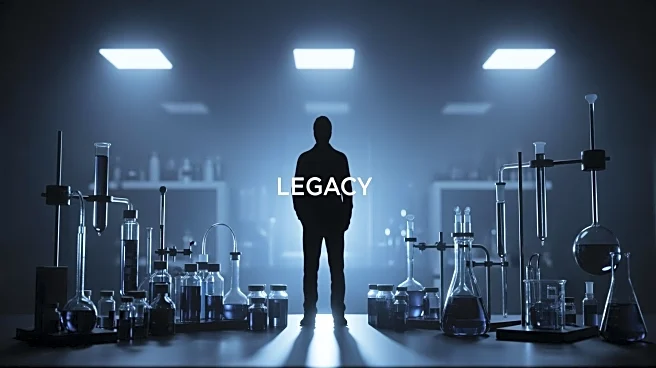What's Happening?
Victor Conte, the founder of the Bay Area Laboratory Co-Operative (BALCO), has died at the age of 75. Conte was at the center of a major steroid scandal that involved providing undetectable performance-enhancing drugs to high-profile athletes, including
baseball stars Barry Bonds and Jason Giambi, and Olympic track champion Marion Jones. The scandal led to a federal investigation and the conviction of several athletes and associates. Conte himself served four months in federal prison after pleading guilty to two charges related to steroid distribution. Despite his controversial past, Conte continued to be involved in the sports nutrition industry through his company, SNAC System, and was known for his outspoken views on doping in sports.
Why It's Important?
The death of Victor Conte marks the end of a significant chapter in the history of sports doping. The BALCO scandal had far-reaching implications for professional sports, particularly Major League Baseball, where it raised questions about the integrity of records and the prevalence of performance-enhancing drugs. The scandal prompted a broader investigation into steroid use in baseball, leading to the Mitchell Report, which highlighted the widespread nature of doping and called for reforms. Conte's actions and the subsequent fallout have had a lasting impact on how sports organizations address doping, influencing policies and testing procedures aimed at maintaining fair competition.
What's Next?
In the wake of Conte's death, there may be renewed discussions about the legacy of the BALCO scandal and its impact on sports. Organizations like the World Anti-Doping Agency may reflect on the lessons learned from the scandal to further strengthen anti-doping measures. Additionally, there could be a reassessment of the effectiveness of current doping regulations and the need for continued vigilance in combating performance-enhancing drug use in sports.
Beyond the Headlines
Conte's story highlights the ethical and legal challenges associated with doping in sports. His ability to evade detection for years underscores the complexities of enforcing anti-doping regulations. The scandal also raises questions about the role of sports organizations, athletes, and regulators in preventing doping and ensuring a level playing field. Conte's later involvement in anti-doping advocacy suggests a potential shift in perspective, emphasizing the importance of learning from past mistakes to improve future practices.














